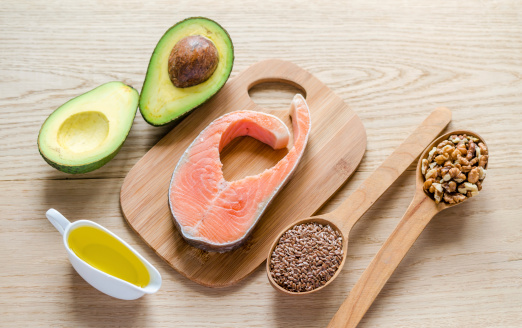Food is more than just nourishment for our bodies. What we eat has a direct impact on how our minds work, our mood and our deepest feelings. The tastes and aromas of the food we grew up with, for example, can trigger happy memories of home and childhood.
The food-mood connection goes even further. Research shows that eating the right foods can promote a positive mental outlook, help relieve anxiety and encourage healthy choices, while reducing your risk of depression and impulsive behavior.
Here’s what you need to know about how your eating habits impact your mood:
You are What You Eat

Studies have found that different types of foods affect our mental state in different ways. It turns out that the very same foods that are unhealthy for our waistlines are just as troublesome for our minds. A diet high in refined sugar and other highly processed foods is associated with a higher risk of depression, according to a report in the journal Psychiatry Research. On the other hand, consuming a well-balanced diet that’s high in vegetables, fruits and complex carbohydrates such as whole grains is associated with a lower incidence of depression.
Even if you are not prone to depression, everyday stress and anxiety can dampen your mood. When we are stressed out or anxious, many of us go for what are commonly known as “comfort foods.” We tend to associate comfort foods with times when we are calm and happy. Many of the most popular choices are high in calories, saturated fat and sugar like cakes, pies, ice cream, mashed potatoes and macaroni and cheese. These foods may help us feel better in the short term. However, they are the kind of fare that is linked both to depression and excess weight gain.
Good Fats for a Good Mood

One nutrient that seems to play a unique role in our moods is omega-3 fatty acids, a healthy fat. Low blood levels of polyunsaturated omega-3 fatty acids are linked not only to depression, but also to pessimism and impulsive behavior, according to another study published in Psychiatry Research. The best sources of this nutrient are fish such as salmon and mackerel, walnuts, flax seeds and chia seeds, says the National Institutes of Health Office of Dietary Supplements. You may also find bread, yogurt, orange juice and milk that have been fortified with omega-3 fatty acids.
No surprise, your Nutrisystem weight loss plan is the ideal diet for maintaining a positive mood. And not just because it speeds you along the path to your ideal weight. The Nutrisystem menu loads you up with nutrient-dense foods like fresh produce, whole grains, lean proteins and healthy fats. This will give you the energy you need to stay active and deal with any stressful situations that come up during your day. Your Nutrisystem plan also allows you to enjoy treats that make you happy when you need them.
For the Love of Chocolate

What can you eat when you need a quick mood lift? The research shows that for many people, the taste of chocolate does the trick. In the journal Nutrition Review, researchers conducted a review of eight different studies that examined chocolate and its impact on mood. Five of the studies demonstrated “either an improvement in mood state or an attenuation of negative mood.”
Ready for the best news of all? Your Nutrisystem menu has delicious, chocolatey treats that will keep you on track towards your weight loss goals. Our Dark Chocolate and Sea Salt Nut Bar, for example, gives you not only sweet, rich flavor and satisfying crunch, you also get the mood-lifting power of omega-3 fatty acids from the nuts. If you’re craving just a few bites of plain milk chocolate, our NutriChocolates will hit the spot. In fact, we have many other chocolate treats that are sure to bring a smile to your face.
The post How Your Eating Habits Affect Your Mood appeared first on The Leaf.
from The Leaf https://ift.tt/2qS0lMu



No comments:
Post a Comment